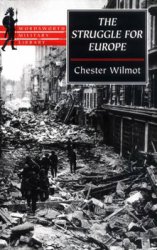El Salvador’s descent into civil war and bloody conflict was equally tragic. It is the smallest and most densely populated Central American republic. Some forty families owned most of the coffee plantations and dominated banking and the mercantile sector. The distribution of wealth is grossly unequal and the per-capita income was almost as low as that of Honduras.
The history of peasant uprisings and protests is a grisly one. A communist-inspired peasant revolt ended in 1932 in wholesale slaughter, a precedent for contemporary times. Here, too, US attitudes after the Second World War were shaped by the fear of communist penetration. Alliances between the wealthy oligarchy and the military were regarded as the only viable alternative and the US has supported them, thereby impeding reform and change. In 1969, El Salvador briefly went to war with Honduras and the resulting victory further enhanced the prestige of the military. But the military and oligarchy began to be challenged by the rise of an urban middle sector. Jose Napoleon Duarte led a rapidly expanding Christian Democratic Party. By the 1970s there appeared to be a possibility of more representative government. It was a false hope. In 1972, the army frustrated the election that would have brought Duarte to power and he barely escaped with his life. But repression in El Salvador did not bring stability. The economic deterioration following on the oil-price rise in 1973-4 led to increased guerrilla activities as more and more Salvadorans became desperate. It also led to another ‘dirty war’. Brief efforts at reform were superseded by military regimes that paid no regard to human rights. Worldwide attention was directed to the methods of the hated regime when Archbishop Oscar Romero, an outspoken critic of these abuses, was murdered in 1980. Right-wing death squads set about murdering whomever earned their disapproval. In 1980 alone there were close to 10,000 political murders. The civil war rages on and the US has aided and trained the Salvadoran army to crush the guerrillas, who terrorise the countryside. Under pressure from the Reagan administration, internationally supervised elections were held in 1982, but the guerrillas refused to lay down their arms and participate. The extreme right won, but in 1984 the more moderate Christian Democrat Jose Duarte was finally elected president.
Under heavy US pressure, civilian rule and regular elections appeared to change El Salvador’s politics for the better. But the government was hardly in control: guerrillas dominated regions of the countryside, and the army remained a law unto itself. The activities of right-wing death squads lessened - the US could claim an improvement in the human-rights position - but so many thousands had fallen victim that the urban population was cowed. The Reagan administration in the 1980s gave $6 billion in aid and by lobbying for land reform hoped to undercut support for the guerrillas and to promote democracy. But Duarte did not solve the political or economic problems of El Salvador and the Marxist-led guerrillas provided evidence of their ability to strike by knocking out nearly all the electricity supplies on the eve of the congressional elections in 1988. People who bothered to vote turned to the right. The small country was ravaged by civil war, which by the early 1990s had claimed at least 70,000 lives, and by left-wing and right-wing terror. Almost half the population was unemployed. Duarte, on whom Washington’s hopes rested, was terminally ill from cancer and his influence weakened. He was replaced in the election of June 1989 by Alfredo Cristiani, the candidate of the extreme right-wing party. Guerrilla terrorism and right-wing death squads continued to abuse human rights. Despite substantial US economic and military aid, the future for El Salvador remained as uncertain as ever, though the outgoing UN secretary general Javier Perez de Cuellar brokered a peace plan in December 1991. On 1 February 1992, a peace agreement was concluded that promised reforms and UN-supervised elections in 1994. Peace, trade and democracy have changed El Salvador’s fortunes. The free-market reforms of the conservative Nationalist Republican Alliance (Arena) and the pegging of the local currency to the US dollar have led to steady growth and low inflation, though austerity and readjustment, too, have been painful. Unlike in Argentina, these reform policies have worked and democratic government in the early twenty-first century is more secure, a stabilising influence in Central America.




 World History
World History









